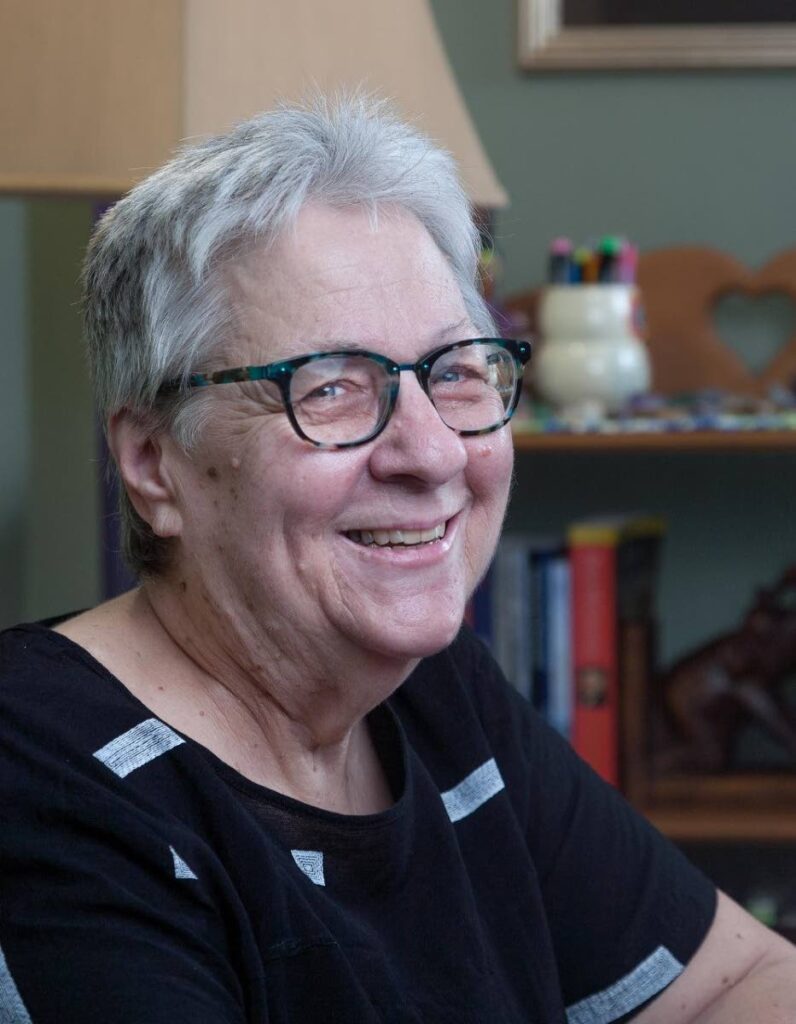Exchange guns for books

Debbie Jacob
EVERY ELECTION and every budget day I think about the book launch I had in Port of Spain Prison for Making Waves: How the West Indies Shaped the US. My daughter, Ijanaya, made 125 handwritten programmes on handmade parchment paper burned around the edges and stained with tea bags so that no two programmes looked alike.
When she planned the seating, she had inmates facing the 80 guests from Joan Dayal’s list of Paper Based patrons. Only an aisle for speakers to walk to the podium separated guests from inmates.
“I’m tired of seeing inmates in the back at events. Let everyone face the inmates and look them in the eye,” she said. Former prison commissioner Gerard Wilson supported the book launch and spoke about the importance of reading and skill-based programmes.
Inmates from my CXC Caribbean history class read excerpts from their favourite chapters and talked about the importance of our history.
Guests cried when they toured the library Children’s Ark had built with a special section for inmates to read to their children.
Six months after the event, while I was walking my dog, a young man working on a garbage truck hailed me out saying, “I was at your book launch in prison.” I never forgot the excitement in his voice.
That book launch reminded me of the rich lives readers have and the lengths bibliophiles will go to support reading.
The people who donate books and money to purchase books understand that if young men have a book in their hands, they are less likely to hold guns. Reading has saved the lives of many young men I taught.
Books help us to process our past and improve our present.
They have power to create empathy, self-reflection, joy and confidence. Many people understand this, but the Government does not. Why does the Government feel the answer to crime is to sink more money into police cars while Nalis has not received any allocation to buy books for its libraries for years now?
Why can caring people like Suzette Cadiz and the NGO Let’s Read find funds to buy books and build elementary school libraries and the Government can't ensure that every primary school in this country has a functioning library with a trained librarian?
A literate population is more content and better informed to make wise decisions and be independent thinkers; yet it feels like the Government works against its greatest crime-fighting tool: books. The education system feels irrelevant to at least 80 per cent of the population because schools don’t use enough exciting and relevant literature. Students are stunned to learn of the power these islands had throughout their history. A history of slavery, colonialism and indentureship has made many of us feel we are powerless.
When I visit at-risk schools and read excerpts from books those students consider relevant, they turn to their teachers and ask, “Can we read that in English class?”
I stood in the library of one such school with 15 secondary students in a book club and saw them disappear one by one as I read. They brought back two English teachers and their classes to hear me read.
And these are the schools where they say no one reads. It’s not true. Boys read. I’ve never had a problem getting boys to read.
In all the work I’ve done in prisons in this country – work no longer wanted by prisons – nothing has matched the joy of seeing young men discover books. Those who leave prison rooted in reading don’t get in trouble again.
So why does the Government – and even our schools – refuse to acknowledge the power and the importance of reading? Students should be reading a book of their choice every month and rewarded with extra credit for oral presentations to their classmates.
Schools should allocate half an hour of free reading every school day. Teachers in all subjects should attend author-led workshops about exciting literature – fiction and non-fiction – available in their subjects.
The Government needs to remove VAT on books. Books are essential items, as important as potatoes, rice and flour.
Parents, writers and readers from the community should volunteer to run book clubs in school libraries. The business community can step up to buy these clubs books and buy books for all Nalis public and school libraries – particularly Caribbean literature – while the government gets its act together.
The writers of this region are doing us proud. Their contributions to literacy are immeasurable. There’s a whole world of peace and hope that exists in books just waiting to be discovered. I believe in the power of books.


Comments
"Exchange guns for books"